Thinking about adopting a bird? Great choice! Birds are quirky and entertaining pets. They act like tiny comedians with feathers.
But before you rush to pick a colorful parrot, there are some important things to consider. Trust me, asking the right questions now can save you from future surprises.
I’ve adopted birds before and learned that not all birds fit every lifestyle. If you want a companion that sings, chats, and adds a bit of sass, you’re in the right spot.
Let’s discuss the must-ask questions for bird adoption. This way, you won’t end up with a feathered roommate that makes you rethink your choices.
Why Do You Want to Adopt a Bird?
Before you get swept up in those adorable cockatiel head tilts, stop and ask yourself the big one: why do you even want a bird in the first place?
Is it because they’re cute? Because you saw one on TikTok doing tricks? Or maybe you actually want a long-term companion?
Birds live a long time. Some parrots live as long as humans. That means you’re not just “buying a pet” but committing to a roommate who may outlive your dog, cat, and possibly your kids’ interest in college.
If your answer is “I want something low-maintenance,” then spoiler alert: a bird is not your pet.
What Species Fits Your Lifestyle?
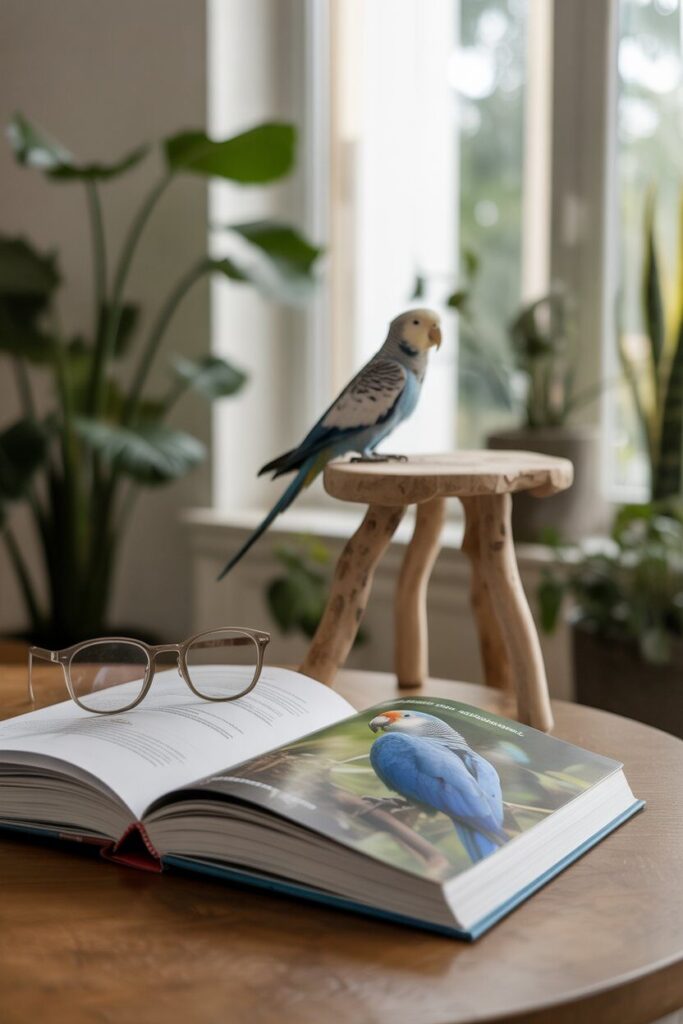
Not all birds are created equal. Some are chill, some are loud, and some make you wonder if they’re plotting world domination.
Smaller Birds: Perfect for Beginners
Budgies, canaries, and finches are like the starter pack of the bird world. They’re generally easier to care for, don’t scream like banshees, and won’t chew through your Wi-Fi cables.
Medium-Sized Birds: A Step Up
Cockatiels and lovebirds add a bit more personality (and yes, noise). They love interaction but still don’t take over your entire living space.
Larger Parrots: High Commitment
African greys, macaws, and cockatoos are incredible, but they need serious commitment. These guys are like having a toddler who never grows up and keeps asking “why” forever.
Key takeaway: Match the bird’s personality with your lifestyle. If you work long hours, a clingy parrot may end up resenting you. If you love quiet, a cockatoo will test your patience.
Explore these bird adoption essentials available now on Amazon
How Much Time Can You Actually Commit?
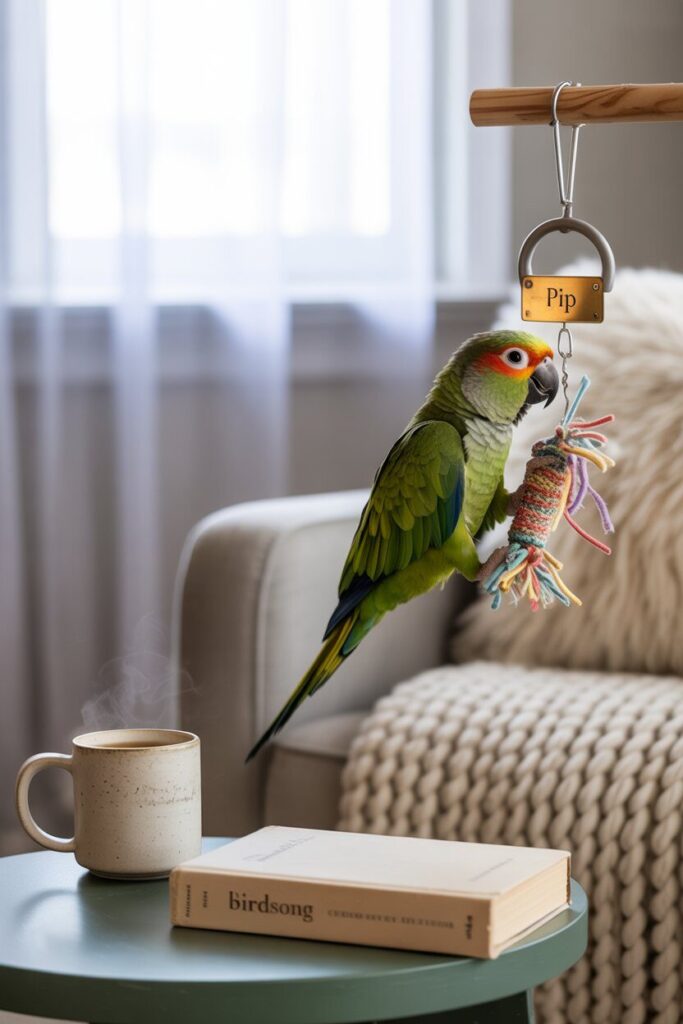
Here’s the truth: birds demand your time. Not just a quick “feed, water, and leave” kind of time, but actual interaction. They thrive on socialization.
If you’re gone all day, your bird might get stressed, bored, or destructive. Ever seen a bored parrot? Let’s just say your furniture won’t thank you.
Birds want to play, learn tricks, and chat with you. They’re social animals, not decorations for your living room.
So ask yourself: can I commit to daily interaction, training, and cleaning? Because yes, there will be poop. Lots of it.
What’s the Noise Level You Can Handle?
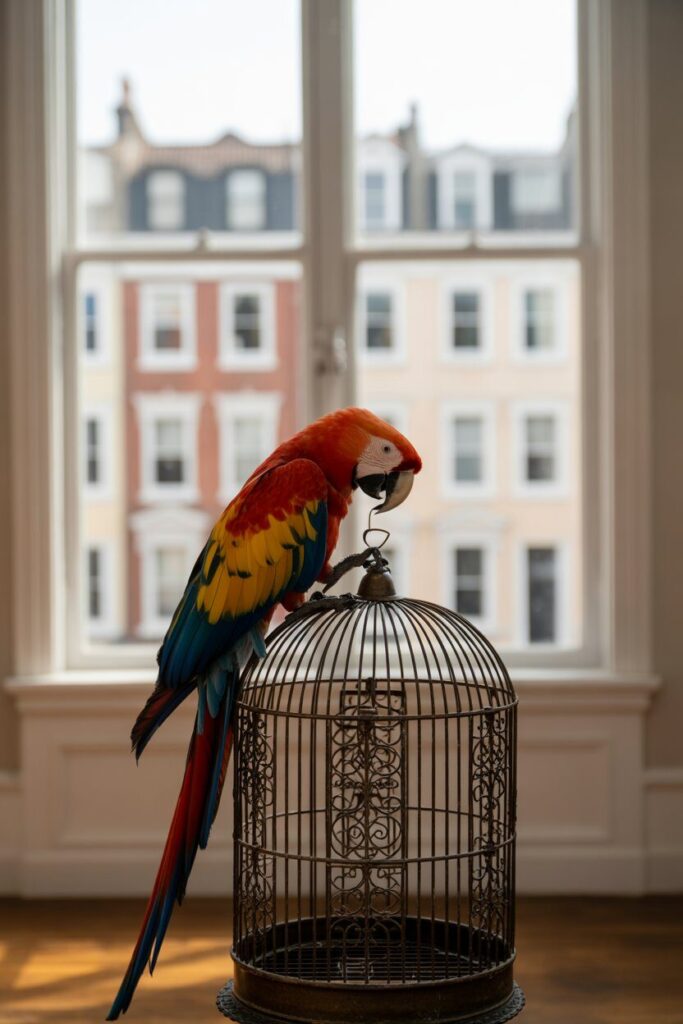
Picture this: You’re enjoying a peaceful Sunday morning, and suddenly your bird decides it’s the perfect time for a screeching opera. Sound familiar? That’s bird life.
- Budgies and canaries: chirpy, melodic, but manageable.
- Cockatiels: whistlers with charm, but they love to sing at sunrise.
- Parrots: loud, unpredictable, and sometimes scream just for fun.
If you live in an apartment with paper-thin walls, your neighbors may file a noise complaint before you even finish your coffee. So be real with yourself: can you handle the volume?
Shop trusted bird care products directly from Amazon today
Are You Ready for the Diet Commitment?

Birds don’t just live on seeds. In fact, a seed-only diet can cause serious health issues. They need a balanced menu with pellets, fruits, veggies, and the occasional treat.
Think of it like meal prepping for a really picky eater who throws the broccoli back at you. If you’re not into chopping fresh produce or cleaning up after a messy eater, you’ll want to rethink your adoption plans.
Pro tip: Learn what foods are toxic to birds (like avocado, chocolate, and caffeine) before you bring one home. Otherwise, one innocent snack could end in heartbreak.
What’s the Long-Term Cost?
Adopting a bird isn’t just about the initial price tag. Sure, that budgie might cost $25 at the pet store, but let’s talk about the ongoing expenses:
- Cages: Bigger is better. Birds need room to flap around, not live in a shoebox.
- Toys: They chew everything. Toys aren’t optional, they’re survival tools for your furniture.
- Vet bills: Not all vets treat birds. Avian vets can be pricey, but they’re a must.
- Food: Fresh produce, pellets, and supplements add up.
When you add it all together, that “cheap” bird starts looking a lot less cheap.
Check out these top-rated supplies for bird owners on Amazon
Do You Have Space for a Bird?
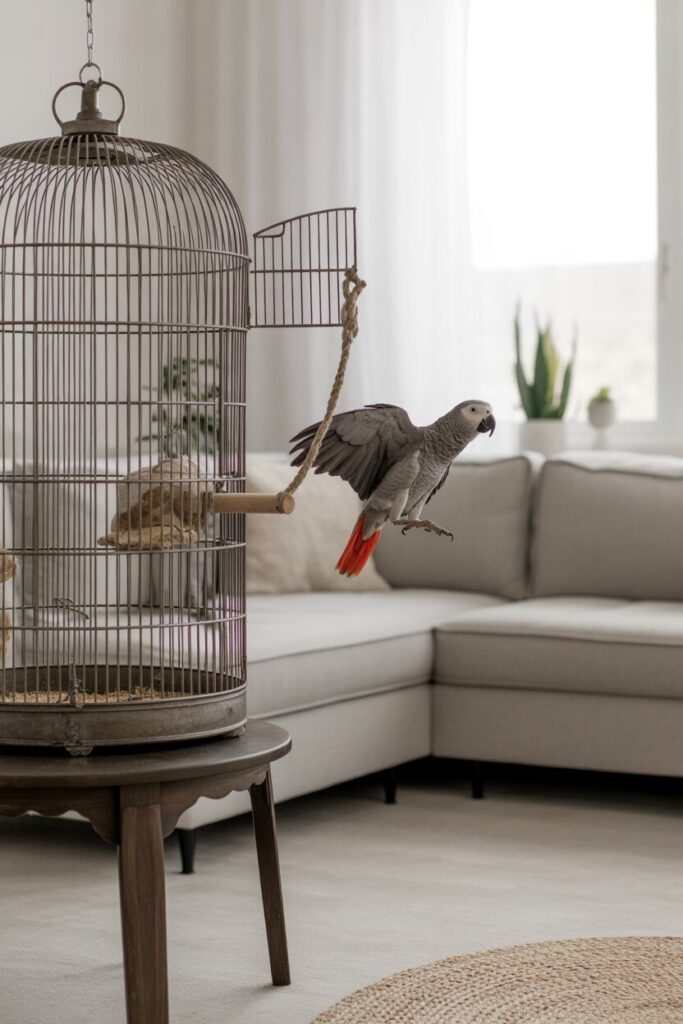
A bird doesn’t just need a cage; it needs space to stretch its wings, fly a bit (if safe), and be part of your daily life. Shoving them in the corner and forgetting they exist is a recipe for disaster.
Think about your home setup:
- Do you have safe, bird-proofed rooms?
- Are there hazards like ceiling fans, open windows, or toxic plants?
- Can you give them out-of-cage time daily?
Birds want to be in the middle of the action. If you’re planning to tuck their cage in the basement, don’t bother adopting one.
Can You Handle the Mess?
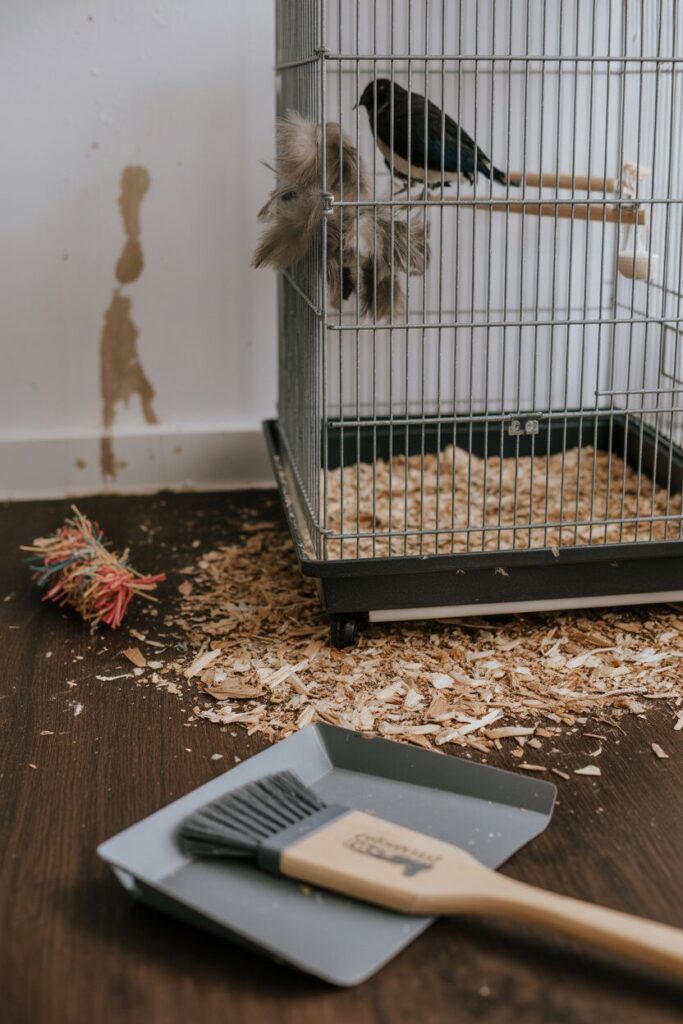
Birds are messy roommates. Seeds, feathers, droppings, and chewed-up toy parts will decorate your floor daily. If you’re the type who freaks out over a crumb on the counter, you might not survive bird ownership.
Cleaning cages, sweeping floors, and scrubbing perches become part of your routine. Some people find it therapeutic. Others? Not so much. The question is: are you okay with daily cleanup duty?
What About Travel and Lifestyle Changes?
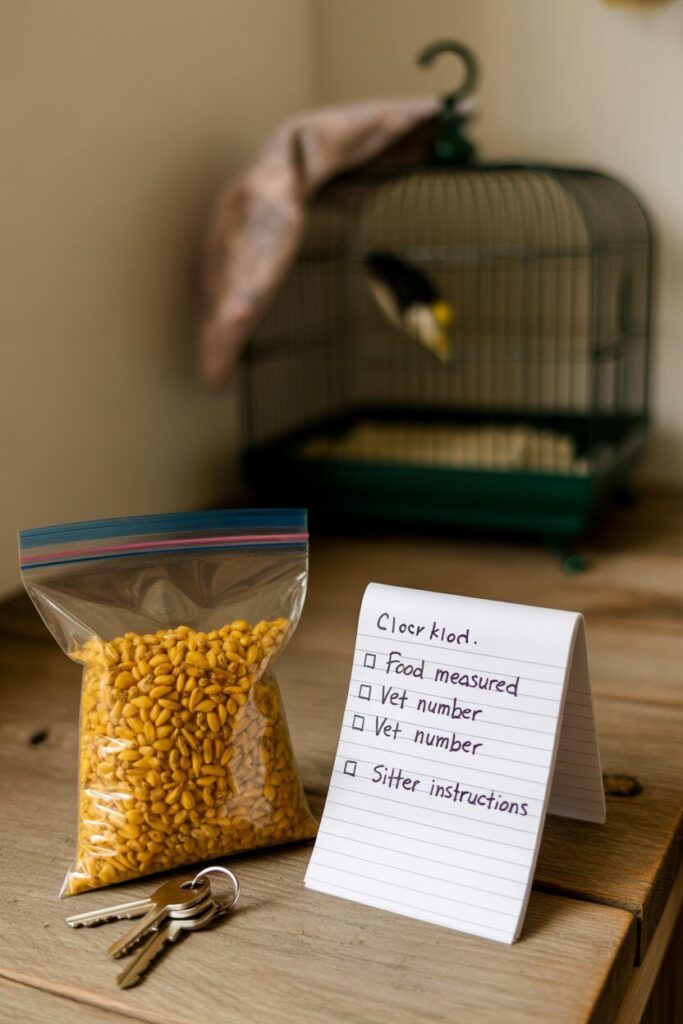
Love to travel? Birds don’t. They thrive on routine and familiarity. Leaving them with a pet sitter is possible, but not everyone knows how to care for them properly.
Unlike dogs, you can’t just ask the neighbor kid to pop in and feed them.
Also, think long-term. If you move, change jobs, or start a family, will you still have time for your bird? Remember, they live decades. This isn’t a summer fling; it’s more like a marriage.
Can You Commit to Training and Socialization?
Birds aren’t born knowing how to behave in your home. They need training, stimulation, and positive reinforcement.
Without it, you may end up with a biting, screaming ball of feathers that nobody wants to deal with.
Teaching them tricks, setting boundaries, and spending quality time together keeps them happy and sane.
Plus, training strengthens your bond, and let’s be honest, it’s pretty cool to have a parrot who can wave or say “hello.”
Are You Prepared for Their Lifespan?
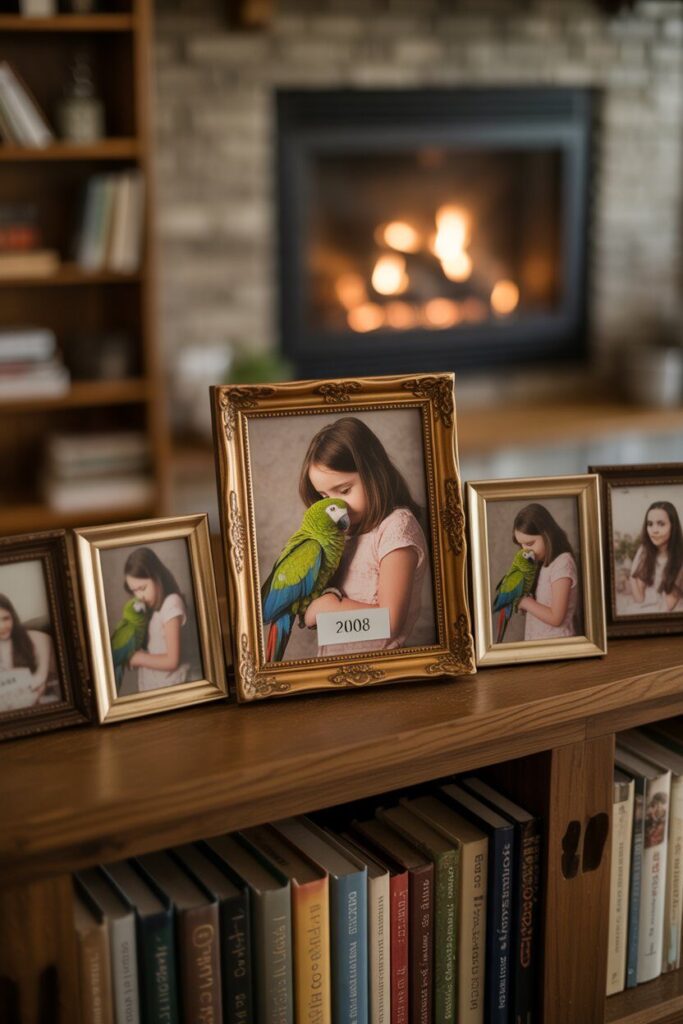
This one’s huge. Depending on the species, birds live anywhere from 5 to 80 years. That’s longer than some marriages.
Adopting a parakeet might mean a 10-year commitment. Adopting a macaw? You’re basically planning your retirement together.
Ask yourself: can I promise to care for this bird for decades? If the answer is no, it’s better to step back now.
What’s the Rescue or Adoption Policy?
If you’re adopting from a shelter or rescue, ask about their adoption policy. Some rescues provide trial periods, support for first-time owners, or even training sessions. Others may have strict return policies.
Never skip these questions:
- What’s the bird’s history?
- Do they have medical records?
- What’s their current diet and routine?
- Do they come with a cage or supplies?
The more you know upfront, the fewer surprises later.
Final Thoughts
Adopting a bird is exciting, but it’s also a massive responsibility.
Asking these must-ask questions for bird adoption helps you figure out if you’re ready for the challenge or if maybe you’re better off sticking with goldfish.
Birds bring joy, laughter, and companionship, but they also bring noise, mess, and lifelong commitment.
So before you make the leap, think carefully. Do you have the time, space, patience, and sense of humor for a bird?
If yes, congratulations—you’re about to welcome one of the most rewarding companions you’ll ever have. If not, no worries. At least you now know the truth instead of learning it the hard way.
And hey, if you do decide to adopt, be ready for your mornings to start with chirps, whistles, or maybe even a sarcastic “hello” from across the room. Honestly? It’s pretty great.
What Are the Most Important Questions to Ask Before Adopting a Bird?
The key questions center on your lifestyle, space, and time. You should consider if you can manage noise, mess, diet needs, and the long lifespan of many birds.
Birds are not short-term pets; they are lifelong companions needing daily interaction and socialization.
It’s wise to ask about the bird’s background. What do they eat? Have they had medical checkups? What is their temperament? Clear answers upfront make adoption easier and help avoid surprises later.
How Do I Know Which Bird Species Fits My Lifestyle?
Think about how much time you spend at home and the type of environment you have. Smaller birds like budgies and canaries do well in busy households.
Larger parrots, such as African greys or cockatoos, need constant interaction. Each species has different energy levels, social needs, and noise levels, so it’s important to match them to your lifestyle.
If you like quiet spaces, steer clear of loud birds like cockatoos. If you work long hours, don’t choose highly social birds that get lonely. Instead, look for birds that fit your schedule and living situation.
What Costs Should I Expect When Adopting a Bird?
Many first-time adopters don’t realize the full cost of bird ownership. Besides the adoption fee, you’ll need a roomy cage, perches, and safe toys for your bird.
Fresh food, pellets, and supplements can add up each month.
You should also plan for avian vet visits. These are often pricier than regular pet care.
Birds live long lives, so consider costs over decades, not just months. A financial plan helps keep your bird healthy and happy for years.
How Noisy Are Pet Birds Really?
Noise levels differ by species, but all birds make sounds. Smaller birds, like finches and canaries, chirp pleasantly. Cockatiels whistle and sing all day. Parrots can scream, squawk, or mimic human voices loudly.
If you live in an apartment or prefer quiet, think carefully. Some birds vocalize at sunrise or when they feel ignored. Ask yourself if you can handle the noise. Once you adopt, there’s no mute button.
What’s the Lifespan of Different Pet Birds?
Bird lifespans vary by species. Smaller birds like budgies live around 5–10 years. Cockatiels can reach up to 20 years.
Larger parrots, such as macaws and African greys, can live 40–80 years. This means a long-term commitment.
When adopting, think about your readiness for this responsibility. It’s not just about enjoying a pet now. You must also care for them for many years. If you’re not ready, consider a species with a shorter lifespan.
